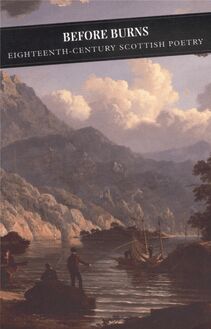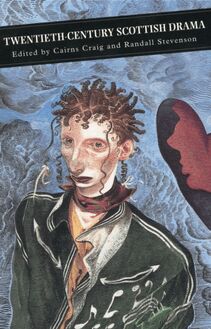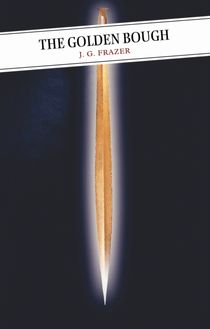-
 Univers
Univers
-
 Ebooks
Ebooks
-
 Livres audio
Livres audio
-
 Presse
Presse
-
 Podcasts
Podcasts
-
 BD
BD
-
 Documents
Documents
-
- Cours
- Révisions
- Ressources pédagogiques
- Sciences de l’éducation
- Manuels scolaires
- Langues
- Travaux de classe
- Annales de BEP
- Etudes supérieures
- Maternelle et primaire
- Fiches de lecture
- Orientation scolaire
- Méthodologie
- Corrigés de devoir
- Annales d’examens et concours
- Annales du bac
- Annales du brevet
- Rapports de stage
La lecture à portée de main

Vous pourrez modifier la taille du texte de cet ouvrage
Découvre YouScribe en t'inscrivant gratuitement
Je m'inscrisDécouvre YouScribe en t'inscrivant gratuitement
Je m'inscrisEn savoir plus
Vous pourrez modifier la taille du texte de cet ouvrage
En savoir plus

Description
Sujets
Informations
| Publié par | Canongate Books |
| Date de parution | 01 juillet 2010 |
| Nombre de lectures | 0 |
| EAN13 | 9781847675019 |
| Langue | English |
| Poids de l'ouvrage | 1 Mo |
Informations légales : prix de location à la page 0,0800€. Cette information est donnée uniquement à titre indicatif conformément à la législation en vigueur.
Extrait
In Memory of
ANNA MORGAN
(1934–1996)
CONTENTS
Editor’s Note
Introduction
The Poems of Robert Henryson
The Fables Prologue
The Cock and the Jasp
The Two Mice
The Cock and the Fox
The Fox and the Wolf
The Trial of the Fox
The Sheep and the Dog
The Lion and the Mouse
The Preaching of the Swallow
The Fox, the Wolf and the Cadger
The Fox, the Wolf, and the Husbandman
The Wolf and the Wether
The Wolf and the Lamb
The Paddock and the Mouse
Orpheus and Eurydice
The Testament of Cresseid
Robene and Makyne
The Garmont of Gud Ladeis
The Bludy Serk
The Annunciation
The Praise of Age
The Ressoning betwix Aige and Yowth
The Ressoning betwix Deth and Man
The Thre Deid Pollis
Ane Prayer for the Pest
The Abbey Walk
Against Hasty Credence
Sum Practysis of Medecyne
The Poems of William Dunbar
My Heid did Yak Yester Nicht
Sir Jhon Sinclair Begowthe to Dance
Now Fayre, Fayrest of Every Fayre
Quhen Merche wes with Variand Windis Past (The Thrissill and the Rois)
Gladethe, Thoue Queyne of Scottish Regioun
This Hindir Nycht in Dumfermeling
Schir, for Your Grace Bayth Nicht and Day
O Lusty Flour of Yowth, Benyng and Bricht
Thir Ladyis Fair
To Dwell in Court, My Freind, Gife that Thow List
How Sowld I Rewill Me or Quhat Wyis
Musing Allone this Hinder Nicht
Madam, Your Men Said Thai Wald Ryd
Of Februar the Fyiftene Nycht (The Dance of the Sevin Deidly Synnis)
Betwix Twell Houris and Ellevin
Lang Hef I Maed of Ladyes Quhytt
Now Lythis of ane Gentill Knycht
In Vice Most Vicius He Excellis
Renownit, Ryall, Right Reverend and Serene (The Ballade of Barnard Stewart)
Illuster Lodovick, of France Most Cristin King
I Maister Andro Kennedy
Schir Johine the Ros, ane Thing Thair is Compild (The Flyting of Dumbar and Kennedie)
Schir, I Complane of Injuris
Quhy Will Ye, Merchantis of Renoun
This Nycht in my Sleip I wes Agast
Ane Murlandis Man of Uplandis Mak
Blyth Aberdeane, Thow Beriall of all Tounis
We that are Heir in Hevynnis Glorie
As Yung Awrora with Cristall Haile (A Ballat of the Abbot of Tungland)
Lucina Schyning in Silence of the Nycht
This Nycht Befoir the Dawing Cleir
Of Benefice, Sir, at Everie Feist
Schir, at this Feist of Benefice
Complane, I Wald, Wist I Quhome Till
Schir, Yit Remember As Befoir
Schir, Ye have Mony Servitouris
Be Divers Wyis and Operatiounes
Of Every Asking Followis Nocht
To Speik of Gift or Almous Deidis
Eftir Geving I Speik of Taking
This Waverand Warldis Wretchidnes
This Hinder Nycht, Half Sleiping As I Lay
My Prince in God Gif The Guid Grace
Schir, Lat it Never in Toune Be Tald
The Wardraipper of Venus Boure
O Gracious Princes Guid and Fair
Sanct Salvatour, Send Silver Sorrow
My Lordis of Chalker, Pleis Yow to Heir
I Thocht Lang Quhill Sum Lord Come Hame
To Speik of Science, Craft or Sapience
He that hes Gold and Grit Riches
Man, Sen Thy Lyfe is Ay in Weir
Quhome to Sall I Complene My Wo
Foure Maner of Men ar Evill to Pleis
Fredome, Honour and Nobilnes
Quho Thinkis that He Hes Sufficence
Full Oft I Mus and Hes in Thocht
Be Mery, Man, and Tak Nocht Fer in Mynd
In to thir Dirk and Drublie Dayis
I Seik Aboute this Warld Onstable
Of Lentren in the First Mornyng
Memento, Homo, Quod Cinis Es
O Wreche, Be War, this Warld Will Wend the Fro
Quhat is this Lyfe Bot ane Straucht Way to Deid
I that in Heill wes and Gladnes (The Lament for the Makars)
Hale, Sterne Superne, Hale, in Eterne
Rorate, Celi, Desuper
Amang Thir Freiris, Within ane Cloister
Done is a Battell on the Dragon Blak
To The, O Marcifull Salviour Myn, Jesus (The Tabill of Confessioun)
O Synfull Man, thir ar the Fourty Dayis (The Maner of Passyng to Confessioun)
Salviour, Suppois My Sensualite
In May as that Aurora did Up Spring
Ryght as the Stern of Day Begouth to Schyne (The Goldyn Targe)
Sen that I am a Presoneir
My Hartis Tresure and Swete Assured Fo
Sweit Rois of Vertew and of Gentilnes
Be Ye an Luvar, Think Ye Nocht Ye Suld
Quha Will Behald of Luve the Chance
Apon the Midsummer Evin, Mirriest of Nichtis (The Tretis of the Twa Mariit Wemen and the Wedo)
In Secreit Place this Hyndir Nycht
Now Cumis Aige Quhair Yewth hes Bene
Rycht Airlie on Ask Weddinsday
Now of Wemen this I Say, for Me
Gavin Douglas
The Palis of Honoure
The Prologue
The First Parte
The Seconde Parte
The Third Parte
Notes
Further Reading
EDITOR’S NOTE
The aim of this edition is to bring together the works of the three most famous poets of late fifteenth and early sixteenth-century Scotland: Robert Henryson, William Dunbar and Gavin Douglas. The complete poems of Henryson and Dunbar are collected in this volume, including those poems which have recently fallen out of favour with critics as being of doubtful attribution, the intention being to give as complete a picture of the authors and the times as possible. As for Douglas, the complete text of his Palis of Honoure is presented here, though not the Enead as no collection could include it in its entirety and it has been the policy of this edition not to reduce poems to extracts.
The edition has been designed for the non-specialist reader: the spelling of the texts has been slightly modernised, very detailed glosses are provided, and difficult lines have been translated in full. Each poem is introduced in the endnotes in order to place it in its historical and literary context, and each is provided with explanatory notes on obscure or difficult points. The edition does not discuss the various manuscripts of the poems. In each case a copy-text has been selected and is emended only where necessary. Readers requiring to know about the sources and alternative readings are referred to the editions of Priscilla Bawcutt, Denton Fox and James Kinsley. I am greatly indebted to the work of these scholars, and indeed to all the previous editors of the poems contained in this volume. In the preparation of this edition I have made extensive use of their work and wish to acknowledge this debt.
I am also grateful to a number of people and institutions who made the editing of this book not only possible but enjoyable. The University of Stirling provided me with a semester’s sabbatical leave in order to complete the volume, and also provided a friendly and stimulating environment in which to work. My colleagues, particularly Brian Murdoch, Fiona Watson, Robin Sowerby, Neil Keeble and Alasdair Macrae, were a source of advice and support, and without the initiative and forbearance of Rory Watson, also my editor at Canongate, the edition would never have come into being. I wish also to thank Laura and Jim Cleary, Diane Watt, Michelle Morgan, Martin Davies, and, especially, Adrian Murdoch for all their assistance of various kinds, and Douglas Gray for his help and kindness when I embarked on this project. Many of my medieval literature students at the University of Stirling saw this volume through and for their enthusiasm, questions and insights I wish also to express my thanks. The edition would not have been possible without the help of many libraries and their staff: the National Library of Scotland; the Bodleian Library, Oxford; the British Library; Stirling University Library; and Glasgow University Library. Finally, I wish to thank my husband, John Tasioulas, for everything, but particularly his intellectual stimulus and his reassuring presence.
INTRODUCTION
Medieval maps of Scotland are usually poorly drawn, its islands disappearing into land masses or into the sea, with warnings in various regions about wolves, wild men or even monsters. To many it seemed like a mysterious and terrible land, its people as fierce as its weather, wild and dangerous like the country itself. As the Middle Ages ended, the ferocious reputation still remained. It was Scots who formed the bodyguard of the kings of France and who were known throughout Europe as the fiercest of soldiers. Four successive Scottish kings died violently: James II and James IV in battle, James I and III murdered; and if the danger was not enemies without then it was enemies within as the noble families vied for power. But such violence is only one side of the story. It was also a period of growth and activity in which the great Scottish burghs emerged, magnificent churches and abbeys were built and palaces were erected. As the Middle Ages came to a close in Scotland and the Renaissance dawned, Scots became known abroad as merchants, students, scholars and also poets. Indeed, Scotland at the close of the fifteenth century and beginning of the sixteenth was home to a thriving poetic tradition ranging from ballad to epic and from romance to fable. The list of his ‘brether’ poets provided by William Dunbar in his ‘Lament for the Makars’ (‘I that in Heill wes and Gladnes’) is a lengthy one. The works of some of them have been lost to us, while the identity of others is not clear, but in the midst of the catalogue we find the name of Robert Henryson, one of the country’s greatest early poets. Add to this the name of Dunbar himself, and of his near contemporary Gavin Douglas, and the result is three of Scotland’s finest ever poets.
Robert Henryson
Not much is known about the life of Robert Henryson. Indeed, much of what is generally believed about him is derived from two lines in Dunbar’s ‘I that in heill wes and gladnes’. It is said of Death that:
In Dunfermelyne he has done roune
With Maister Robert Henrisoune (11.81–2)
These lines, though brief, are valuable in providing a setting for the poet’s life, a suggestion of his social status, and a likely date of death. The poem is usually dated to 1505 or 1506 and it can therefore be assumed that Henryson had heard Death’s ‘whisper’ before this point. As for Henryson’s association with Dunfermline, this is also attested to in the early printed editions of h
Attention
En entrant sur cette page, vous certifiez :
- 1. avoir atteint l'âge légal de majorité de votre pays de résidence.
- 2. avoir pris connaissance du caractère érotique de ce document.
- 3. vous engager à ne pas diffuser le contenu de ce document.
- 4. consulter ce document à titre purement personnel en n'impliquant aucune société ou organisme d'État.
- 5. vous engager à mettre en oeuvre tous les moyens existants à ce jour pour empêcher n'importe quel mineur d'accéder à ce document.
- 6. déclarer n'être choqué(e) par aucun type de sexualité.
YouScribe ne pourra pas être tenu responsable en cas de non-respect des points précédemment énumérés. Bonne lecture !
-
 Univers
Univers
-
 Ebooks
Ebooks
-
 Livres audio
Livres audio
-
 Presse
Presse
-
 Podcasts
Podcasts
-
 BD
BD
-
 Documents
Documents
-
Jeunesse
-
Littérature
-
Ressources professionnelles
-
Santé et bien-être
-
Savoirs
-
Education
-
Loisirs et hobbies
-
Art, musique et cinéma
-
Actualité et débat de société
-
Jeunesse
-
Littérature
-
Ressources professionnelles
-
Santé et bien-être
-
Savoirs
-
Education
-
Loisirs et hobbies
-
Art, musique et cinéma
-
Actualité et débat de société
-
Actualités
-
Lifestyle
-
Presse jeunesse
-
Presse professionnelle
-
Pratique
-
Presse sportive
-
Presse internationale
-
Culture & Médias
-
Action et Aventures
-
Science-fiction et Fantasy
-
Société
-
Jeunesse
-
Littérature
-
Ressources professionnelles
-
Santé et bien-être
-
Savoirs
-
Education
-
Loisirs et hobbies
-
Art, musique et cinéma
-
Actualité et débat de société
- Cours
- Révisions
- Ressources pédagogiques
- Sciences de l’éducation
- Manuels scolaires
- Langues
- Travaux de classe
- Annales de BEP
- Etudes supérieures
- Maternelle et primaire
- Fiches de lecture
- Orientation scolaire
- Méthodologie
- Corrigés de devoir
- Annales d’examens et concours
- Annales du bac
- Annales du brevet
- Rapports de stage














